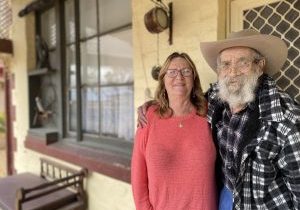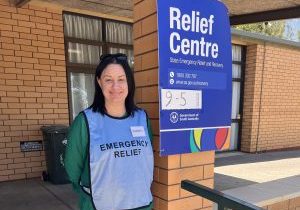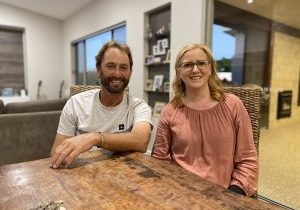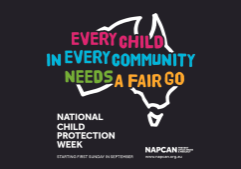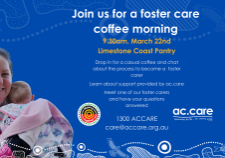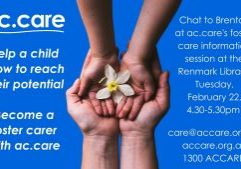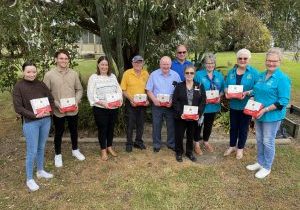Application and Assessment Process
There are several steps in the process of becoming a registered foster carer. Due to the complex nature of foster carer applications and assessments, generally this will take from six to nine months and includes these steps:
Registration of Interest
Information exchange meeting
Submission of application and background screening checks
Assessment interviews and training
Submission of the assessment to the Department for Child Protection for approval
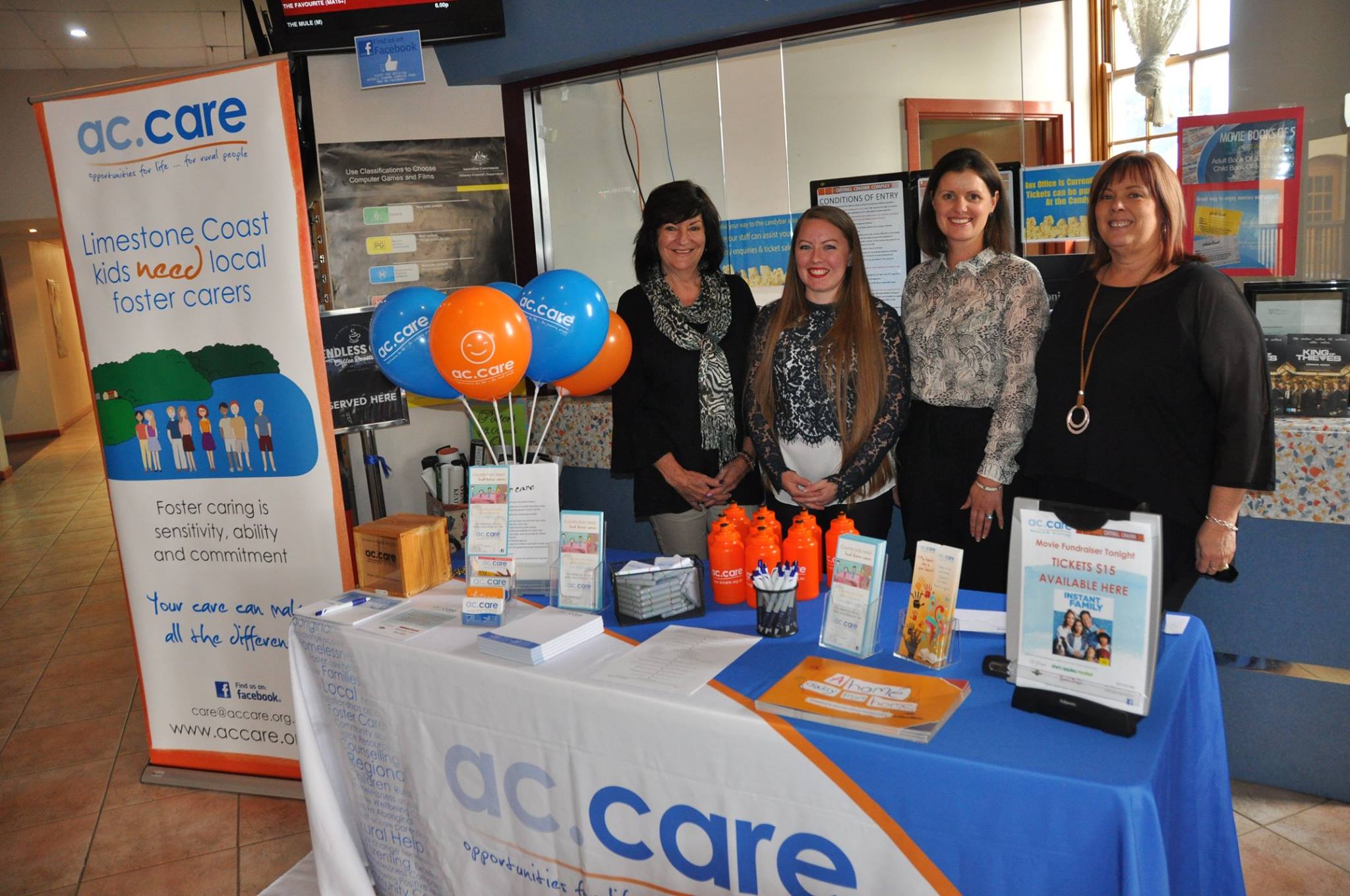
ac.care assessment worker
Right from the start, when you register your interest in becoming a foster carer, you will begin working with an ac.care assessment worker. This person is part of our foster care team and normally located within your region. Your assessment worker will work closely with you during the whole process. They will be your primary contact for the application, assessment, approval and registration steps.
Background Screening Checks
Background screening checks are a requirement of all foster care applications. A thorough assessment is required of each carer and household to ensure the safety of children placed in foster care homes. This includes:
• Department of Human Services (DHS) Working with Children Check (WWCC)
• Department for Child Protection Child Protection History Check
• Health assessments
• Home safety check
• Personal referee checks
• Consideration of any previous applications to become a foster carer with other agencies in Australia and overseas.
Home safety check
Your assessment worker will visit your home and undertake the home safety check with you. This identifies any safety risks where you may need to make changes to meet the home safety requirements. Examples of the safety requirements include:
• ensuring that dangerous items such as detergents are not accessible to children
• having a secure outdoor area
• securing a guard around heaters and wood fires
• a bushfire safety plan is maintained where required.
Personal referees
You will be asked to provide two personal referees who are unrelated but have known you for at least two years and can comment on your background, experience and suitability to care for children and young people.
Privacy
The information provided in your application, including background screening, consent to share information and any further information will be treated confidentially and will not be used without your prior consent for any purpose other than to assess your application for foster care. ac.care abides by the Privacy Act 1988 and adheres to the Australian Privacy Principles in collecting, storing and managing personal information. ac.care is committed to protecting individuals’ rights of privacy and confidentiality while delivering quality services.
Assessment and Training
Once the foster care application and background screening checks are complete, pre-approval training and assessment interviews will commence. Initially all applicants will undertake foundational training called ‘Shared Lives’, which is facilitated over two days. Following its completion, there are approximately five face-to-face assessment interviews with your assessment worker. The number of interviews may increase depending on your circumstances. Other pre-approval training requirements will be scheduled during this time.
The pre-approval training helps develop the knowledge and skills required to become a foster carer. Mandatory training sessions for all foster care applicants are as follows:
Shared Lives
A foundational foster care orientation training program facilitated over two days. Shared Lives provides applicants with an overview of children in care, their responses to trauma, family contact and how to manage one's own responses to challenging behaviours. Key topics:
• How and why do children come into foster care?
• Impact of developmental trauma and behaviour
• Helping children feel safe
• Promoting identity and birth family contact
• Grief, loss and separation trauma
• Responding to behaviour
• Maintaining cultural connections
• Support, teamwork and the care team.
Safe Environments for Children and Young People (Through their Eyes)
This one-day training program covers the responsibilities of foster carers as mandatory reporters. The course explains the Department for Child Protection system in context, different types of child abuse and neglect, how to make a notification to the child abuse report line (CARL) and how to respond to disclosures of child abuse and neglect. every 3 years.
Safe Care of Infants
This training course was developed by Kidsafe SA and provides the safest and most current practices for the care of infants placed in foster care, as well as injury prevention for all children and young people. Information covered includes understanding the range and incidence of preventable childhood injuries and strategies to reduce preventable injuries and increase safety of the home environment. For example, safe infant sleeping practices. Refresher training is required every 2 years.
Provide First Aid
This training course is run by St John and covers first aid response in a range of situations until the arrival of an ambulance. Foster carers are strongly encouraged to attend first aid refresher training every 3 years.

